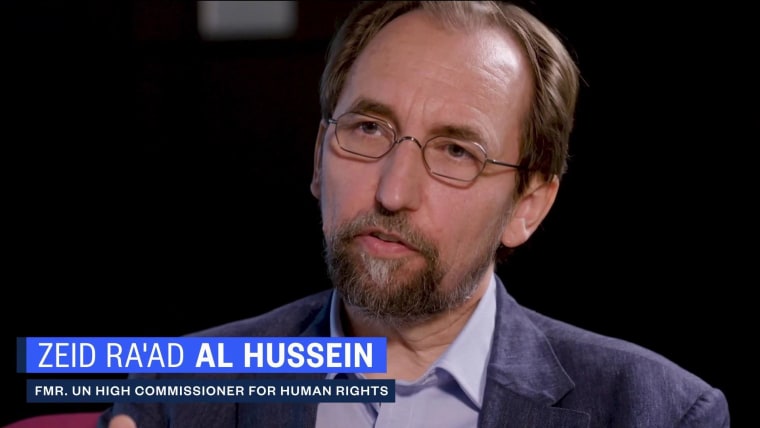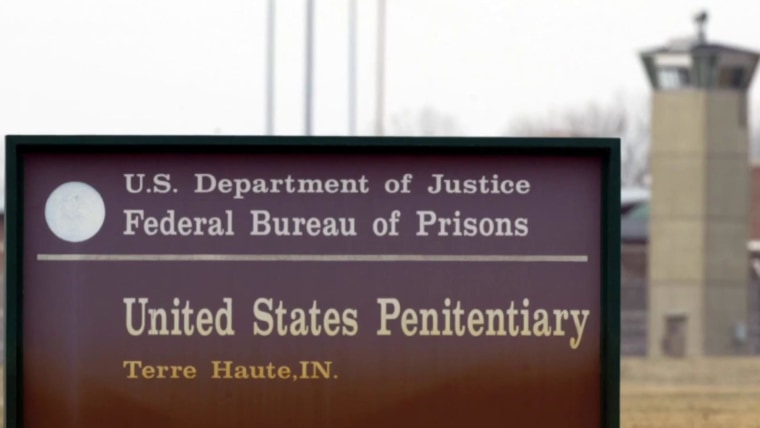The Supreme Court early Tuesday ruled that the first federal executions in 17 years can be carried out.
The justices ruled 5-4 hours after a U.S. District Judge preliminary blocked four inmates from being executed.
Daniel Lewis Lee was originally scheduled to receive a lethal dose of the powerful sedative pentobarbital at 4 p.m. ET Monday, but a federal judge's order prevented his execution.
Tuesday's unsigned Supreme Court majority opinion says that "the plaintiffs have not established that they are likely to succeed on the merits of their Eighth Amendment claim" and "that claim faces an exceedingly high bar."
The Eighth Amendment bars cruel and unusual punishment. The Supreme Court majority opinion says that the executions may proceed as planned. All four executions are to take place at the U.S. Penitentiary in Terre Haute, Indiana.
U.S. District Judge Tanya Chutkan had ruled Monday morning that three death row inmates, and a fourth whose execution is scheduled for August, could pursue their claim that the federal government's plan to use a single drug will cause severe pain and needless suffering.
They claimed that the single-drug protocol, using the barbiturate pentobarbital, interferes with breathing before the heart is stopped, producing a sensation of drowning and asphyxiation, resulting in extreme terror and panic.
Two more executions are scheduled this week: Wesley Ira Purkey on Wednesday and Dustin Lee Honken on Friday. Keith Dwayne Nelson is scheduled to be executed in August.
In 1996, Lee and four other members of a white supremacist organization, went on a crime spree that included the murders of gun dealer William Mueller, his wife, Nancy, and her 8-year-old daughter, Sarah Powell. All five defendants were arrested and convicted.
The four liberal-leaning Supreme Court justices dissented in Tuesday's order allowing executions to proceed.
Justice Stephen Breyer wrote a dissent that was joined by Justice Ruth Bader Ginsburg in which he wrote that there were "significant questions" about the constitutionality of the method the government intends to use.
Justice Sonia Sotomayor wrote in a dissent that was also joined by Ginsburg as well as Justice Elena Kagan that the high court was accepting "the Government’s artificial claim of urgency to truncate ordinary procedures of judicial review."
"This Court now grants the Government’s last-minute application to vacate the stay, allowing death-sentenced inmates to be executed before any court can properly consider whether their executions are unconstitutionally cruel and unusual," Kagan wrote in part.
The decision to move forward with the execution of Lee during a coronavirus pandemic that has killed more than 135,000 people in the United States and is ravaging prisons nationwide drew scrutiny from civil rights groups and the family of Lee’s victims.
It has been criticized as a dangerous and political move. Critics argue that the government is creating an unnecessary and manufactured urgency around a topic that isn’t high on the list of American concerns right now. It is also likely to add a new front to the national conversation about criminal justice reform in the lead-up to the 2020 elections.
U.S. Attorney William Barr last year directed the Justice Department to adopt a new rule for carrying out the death penalty which would restore executions in the federal system.
Barr in June directed the Federal Bureau of Prisons to schedule the executions of Lee, Purkey, Honken and Nelson.
He said in a statement at the time that the four have received "full and fair proceedings" and that the government owes it to the victims and their families to carry out the sentences.
"first" - Google News
July 14, 2020 at 03:39PM
https://ift.tt/3gXH7tA
Supreme Court clears way for first federal executions in 17 years - NBC News
"first" - Google News
https://ift.tt/2QqCv4E
https://ift.tt/3bWWEYd
Bagikan Berita Ini

















0 Response to "Supreme Court clears way for first federal executions in 17 years - NBC News"
Post a Comment